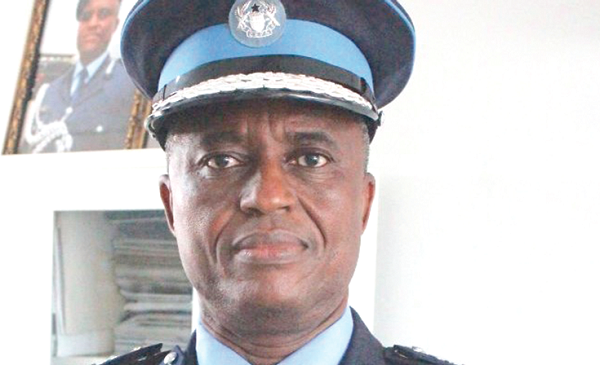The Customs Division of the Ghana Revenue Authority (GRA) will from March 1, this year begin the implementation of the Harmonised System (HS) which encompasses the 2017 version of the ECOWAS Common External Tariff (CET), although industry players are seemingly unaware of the exercise.
The Commissioner of the Customs Division of the GRA, Mr Isaac Crentsil, in an interview with the GRAPHIC BUSINESS on February 22 indicated that the implementation of the 2017 version of the CET was in accordance with an agreement that bound the country to join others in the sub-region in adopting the system for classifying goods entering the country through the ports.
The GRA started implementing the CET on February 1, 2016, after some countries in the sub-region had started the implementation process in January 2015.
Mr Crentsil noted that the CET was revised after every five years and the current version, adopted in 2017, was yet to be implemented in the country although other countries in the sub-region had already started implementating it.
“It is not a new thing but Ghana has actually delayed in implementing the 2017 version of the CET, so if you look around the West African sub-region you would realise that all the countries that are parties to the agreement on the Harmonised System have adopted it and have actually started implementing it already,” he indicated.
Industry reacts
Although the implementation of the CET will help the sub-region in developing and strengthening its common market, an expert in the maritime industry, Dr Kofi Mbia, said in an interview with the GRAPHIC BUSINESS on February 23 that the government must not leapfrog in commencing the implementation process without a comprehensive public education.
“The ECOWAS CET would help promote a common tariff regime among member states as well as offer special protection measures aimed at addressing any trade imbalances across member states, but there must be proper education on the implementation process,” he said.
He said the difference between the 2016 CET and the 2017 revised edition might not be significant but the public must be educated to understand that there were no significant variations in the revised edition of the CET rather than keeping it under wraps.
“At the time of acceptance, you can ask for a reservation as in the case of Liberia; they entered a reservation on imposing some duties on rice even though the rationale behind the CET is to encourage local production and restrict imports of some certain commodities such as rice but where we have accepted the revision, for example, we have to do more education before we implement.”
Dr Mbia stated that he was optimistic that the harmonisation of the tariff regime among member states in the sub-region would help in the improvement of transactions at the ports.
Reacting to the implementation of the 2017 version of CET, the Executive Secretary of the Importers and Exporters Association of Ghana, Mr Asaki Awingobet, indicated that his outfit was unaware of the revised 2017 version which would be implemented beginning March 1.
He said his outfit was only aware of the 2016 CET which they complied with; however, the yet to be implemented 2017 version was new to the association.
“We don’t know about any revised version of the CET but what we can say is that we complied with the 2016 implementation and expected that we would be consulted before it is implemented,” he said.
About the CET
The ECOWAS CET is one of the instruments for harmonising trade among ECOWAS member states by the decision to have a CET was taken at an extra-ordinary meeting of Conference of Heads of State and Governments of Economic Community of West African States held in Senegal in 2013.
With the implementation of the CET, importers clearing goods at the country’s ports would be expected to pay tariffs common to other Economic Community of West African States (ECOWAS) member states.
This means that the same tariff will be charged on an eligible item imported into the ECOWAS sub-region, irrespective of which ECOWAS-member port it is cleared at.
